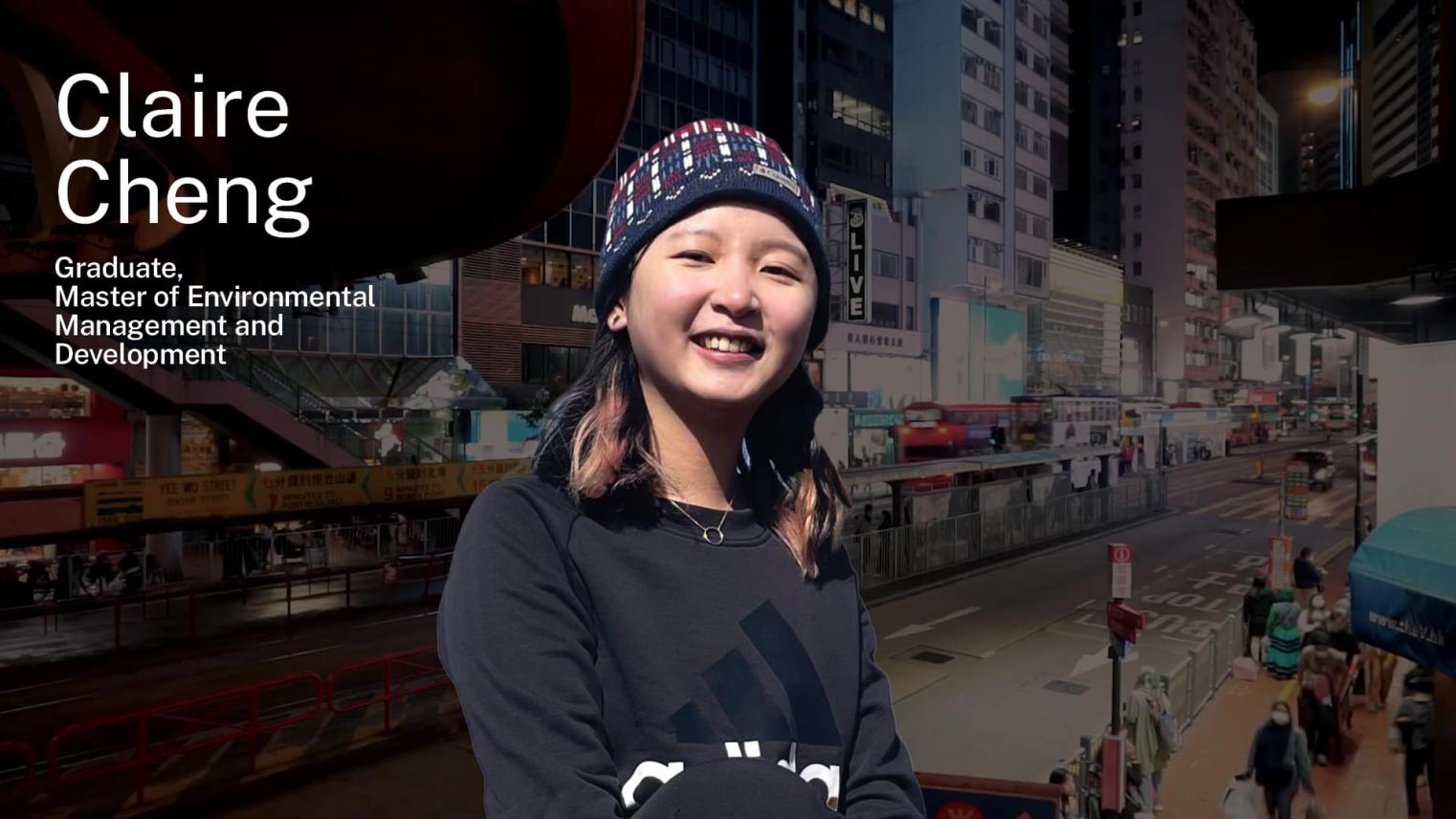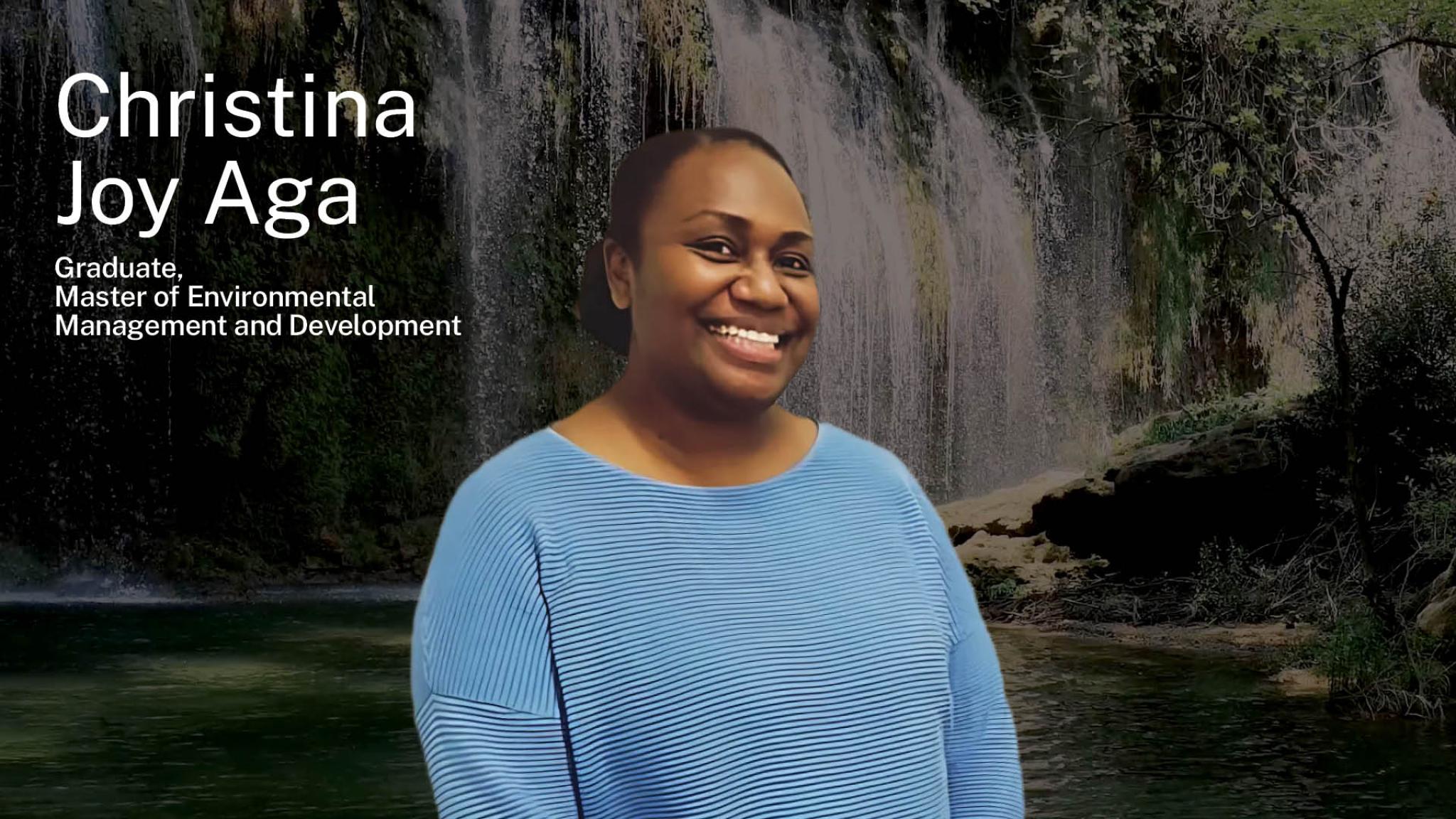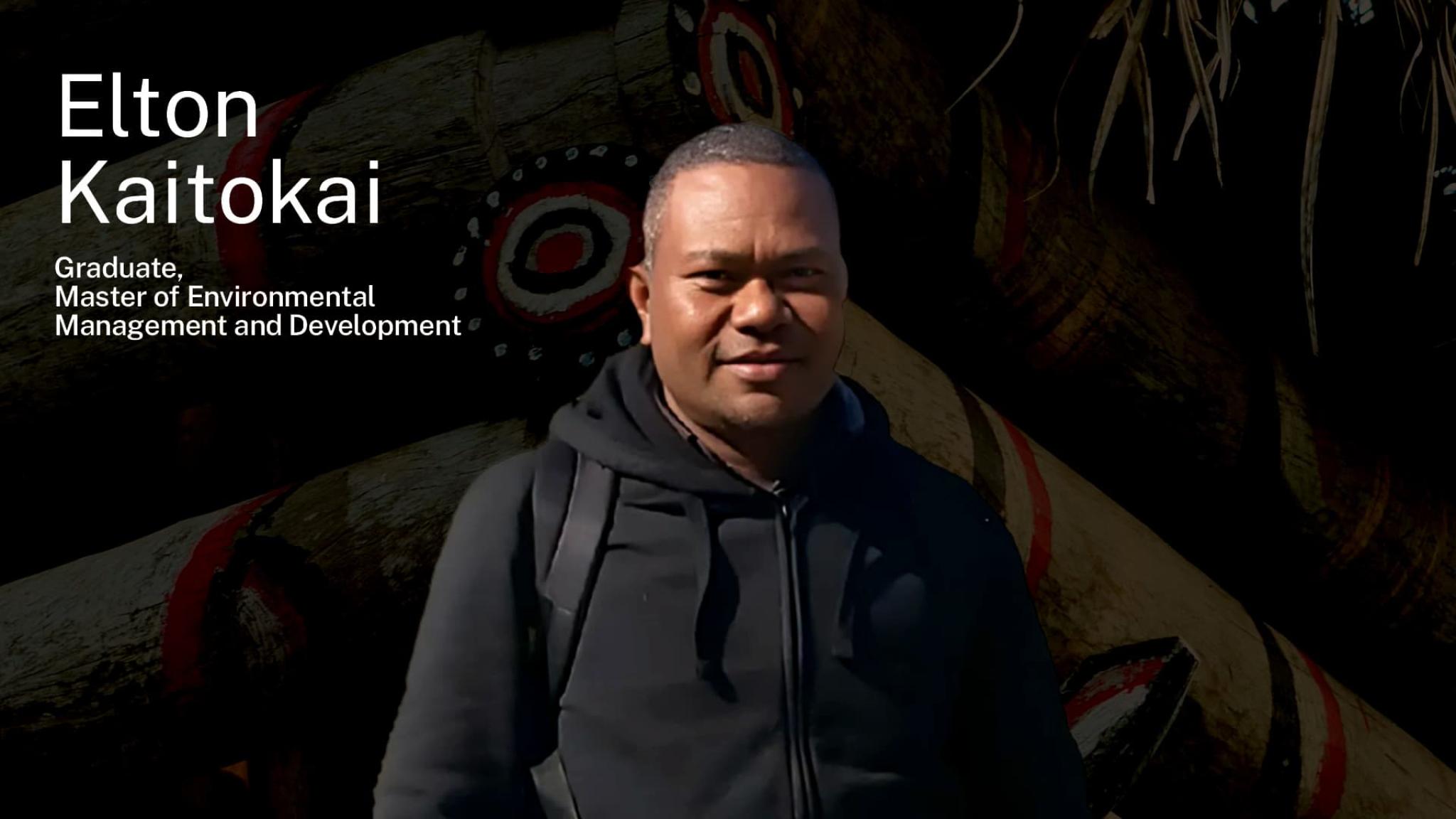Meet our graduates: Claire Cheng – no time to waste in the war on waste

Growing up in Hong Kong’s bustling sprawl, Claire Cheng has always been fascinated by the contrast between urban and natural environments. As a high school student, she developed a curiosity about how societies manage waste, sparked by her observations of the overwhelming mountains of consumer waste being generated around her.
At 17, Claire moved to the United Kingdom for secondary studies, pursuing an advanced course in human and environmental geography, and then an undergraduate degree in geography at the London School of Economics and Political Science (LSE).
On visits back home to Hong Kong, she saw how waste was encroaching on the city’s natural environment. Taking a course on political ecology at LSE allowed her to explore these tensions between society and the environment, and deepened her interest.
She decided to pursue a master’s degree immediately upon completing her bachelor’s degree so she could “specialise in a field I’m passionate about and undertake a thesis I would be genuinely proud of”, she recounts.
The Master of Environmental Management and Development program at the Crawford School of Public Policy stood out as the best option. Her decision to study this two-year coursework degree was driven by the program’s unique focus on socio-economic and political aspects of environmental management within the Australian context, which she says gave her “the flexibility to specialise in my areas of interest and work on a tailored thesis”.
“Crawford’s interdisciplinary approach, allowing students to engage with social, economic, and political dimensions while incorporating optional courses from the ANU Fenner School of Environment and Society for insights into environmental science, was appealing to me”, she explains.
Crawford’s interdisciplinary approach, allowing students to engage with social, economic, and political dimensions while incorporating optional courses from the Fenner School for insights into environmental science, was appealing to me
She is particularly passionate about the ‘What is the Problem Represented to Be?’ (WPR) approach taught by Dr. Simon West in his course ‘Resources, Environment, and Politics in Australia’. She says this framework encouraged her to critically examine environmental governance and uncover overlooked aspects of public policy “through a new lens, questioning preconceptions and uncovering what often goes unnoticed in public policy contexts”.
“The close-knit cohort in the class, paired with peers from such diverse backgrounds, made the experience even more enriching—we even organised our own trip to Mount Kosciuszko after learning about the Snowy Hydro Scheme and the brumbies!” she recalls.
A geographic information systems (GIS) course also equipped her with skills to analyse and visually demonstrate human impacts on the environment, “combining storytelling with spatial analysis to identify balanced, context-specific solutions”, Claire explains.
Another highlight was the course ‘Toxic: Environmental Pollution and Waste’, which expanded Claire’s understanding of pollution and environmental justice.
“Professor Sango Mahanty’s engaging, interactive class discussions, paired with insights from guest speakers specialising in different aspects of pollution and waste, made it truly memorable”, she says.
The courses she chose “deepened my understanding of the root causes of environmental ‘problems’, the uniqueness of local contexts, and the importance of crafting solutions that prioritise sustainable development between humans and the environment”, she says.
“I especially enjoyed learning alongside peers from diverse countries and professional backgrounds, each bringing their unique expertise. Hearing about their cultures, motivations, work, and lived experiences has been both humbling and inspiring, motivating me to make the most of my time” at Crawford, she says.
I especially enjoyed learning alongside peers from diverse countries and professional backgrounds, each bringing their unique expertise. Hearing about their cultures, motivations, work, and lived experiences has been both humbling and inspiring, motivating me to make the most of my time
For Claire, her Crawford experience included an internship and a research project. Her project, ‘Eco-Precariat? The Lived Experiences of Informal Recycling Collectors in Sydney’ involved interviewing participants who recycle containers for income.
“The process—research design, data collection, analysis, writing up, and presenting my findings—was both challenging and rewarding”, she reflects. The project included a 10,000-word research paper that Claire describes as “one of her proudest achievements”.
Claire also participated in the Australian National Internship Program. She was placed with the NoWaste Policy Team at Transport Canberra and City Services, where she produced a research paper on the risks and opportunities of a reusable cup scheme. This experience gave her a practical insight into environmental policy design that she found “eye-opening”.
Her diligent approach to her studies was recognised by the Crawford School when Claire was awarded the Tiri Tiri Prize as the most outstanding student in the Master of Environmental Management and Development program, including achieving the best overall aggregate results.
For prospective students considering the Crawford School, Claire’ s advice is simple: “go for it, and don’t be afraid to try!”
She says that while she was daunted at first, her peers and teachers “humbled and inspired” her, encouraging her to push beyond her limits and embrace every opportunity outside the classroom. “It’s these experiences that can lead to unexpected and rewarding outcomes”, she emphasises.
Claire has been putting this advice into action since finishing her degree. She is exploring publishing her research project, and has worked in a voluntary role with Beyond Zero Emissions, where she combined her geospatial analysis skills with storytelling.
She recently secured a new position as graduate environmental scientist with EMM Consulting, where she conducts environmental impact assessments.
She credits her career success to the “mindset” she gained from studying at the Crawford School. Since her degree, she says she has become “more patient, better organised, and equipped with knowledge across various aspects of environmental management”.
Her concluding words of advice for future students? “Jump in and explore! You never know where these experiences will take you or what you’ll achieve—but it will undoubtedly be worth it”.

